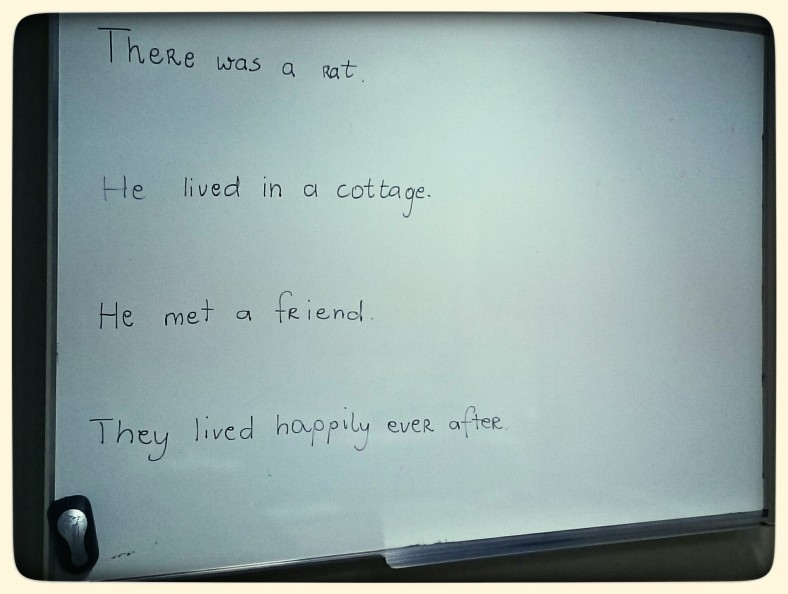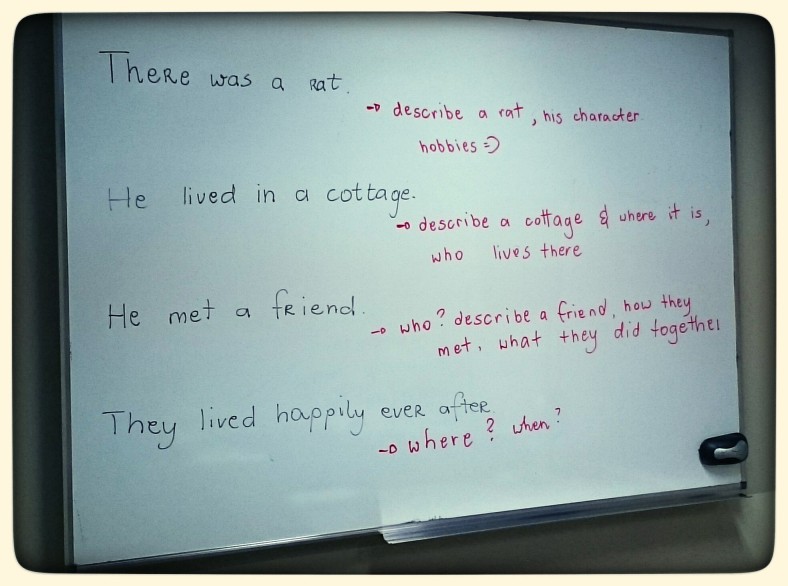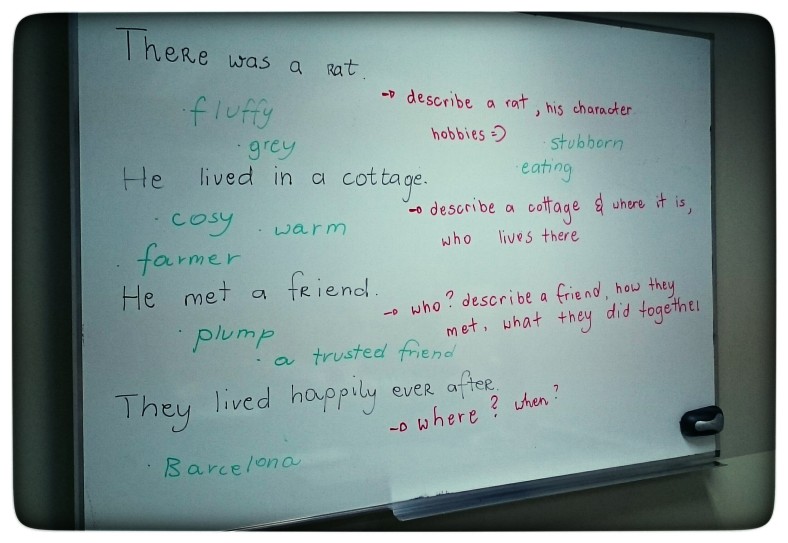When I was a student, my professors emphasised the importance of making lesson plans, but then they referred to people who were about to start teaching. Well, I have been teaching for more than a decade (oh, gosh!) and I still write a short lesson plan for every lesson I have. I’ll try to share my ideas here, but be careful before you follow me and turn into a creepily well-organised pedantic nightmare.
The main thing about the lesson plan is that I feel better knowing beforehand what the future holds – usually when my students write tests I browse through the SB and plan my lessons up to the next test (usually 2-3 units ahead). Then I estimate how much time I’ll need to cover the book material, which exercises are useful and which I’ll skip – and how much time off I’ll have. That’s really important because I can prepare a game or more grammar exercises, depending on what the students may need.
Having a lesson plan like the one I took a photo of, allows me to make little notes: student A has to do additional homework, remember to check it/ student B needs more passive voice exercises and so on. It’s really useful, especially when you keep forgetting stuff like this (I do :)) Also, I keep my old notebooks because I keep reusing and modifying activities and exercises. Learning from my own mistakes, the proper way of a teacher.
Apart from being a great help for me, I find my lesson plans surprisingly beneficial for my students. First of all, I can give them a date of our next test 2-3 weeks beforehand – they really appreciate it. Secondly, I have no problem with “What are we going to do next week because I’ll be absent” stuff – I can tell them exactly which part of the book we’re going to cover. We all know our course is well planned and managed according to the plan. Plus, when we know we’re going to finish the whole book (it’s quite important in the private language schools, plus it does give a sense of accomplishment, when you can close the book realising you’ve covered the whole material – properly), we still can plan a lesson (or three) off the book – play board games, go to the café, have a nice discussion etc.
You might argue that having lesson plans for each and every lesson kills intuition and ability to improvise, but I disagree. The lesson plans I make are concise enough to put a lot of additional activities made up on the spot, and they give me valuable info – if I spend 30 minutes on speaking (instead of planned 20), I’ll have to cut reading (planned for 20 minutes) down to 10-15 minutes.
It takes me up to half an hour a week, to plan my classes, but it helps me immensely in class management.





